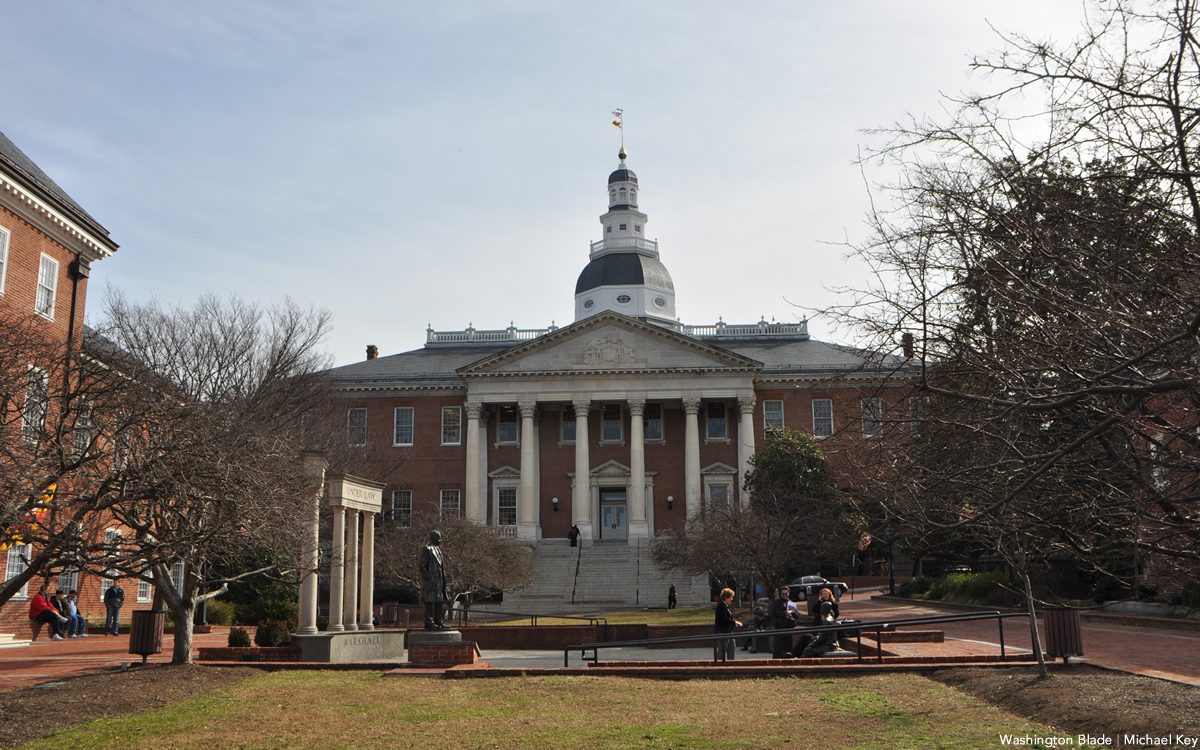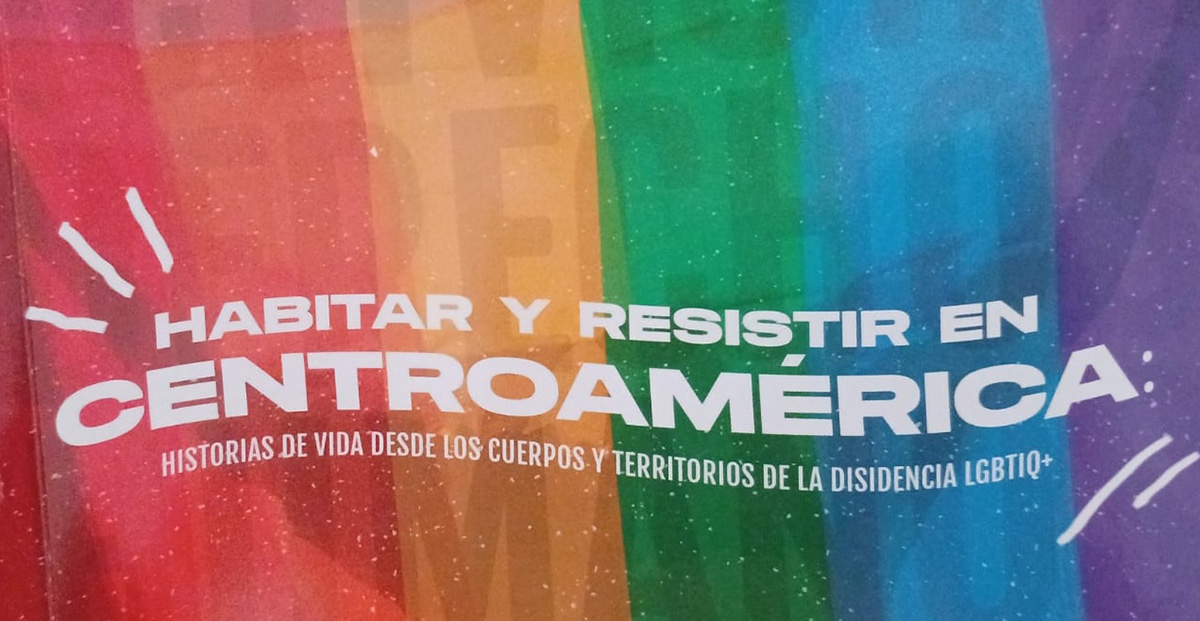News
Russia’s LGBT rights record not discussed during Miss Universe pageant
Thomas Roberts co-hosted event that took place in Moscow

Gay MSNBC anchor Thomas Roberts, who co-hosted the pageant with singer Mel B, earlier on Saturday described Russia’s law banning gay propaganda to minors as a “discriminatory” statute that “condones the closet” during an interview with fellow MSNBC anchor Alex Witt from the Russian capital with Miss Universe 2012 Olivia Culpo. The network said Roberts further criticized the statute during an interview on the red carpet at Crocus City Hall where the pageant took place.
“I know the law is very vague, and it’s still hard to interpret for many people,” the gay MSNBC anchor said. “It is discrimination and that’s definitive.”
Roberts further criticized the Kremlin’s LGBT rights record during an interview with Agence France-Presse after he and his husband, Patrick Abner, arrived in Moscow.
“The Russian laws obviously are a dark time and a dark chapter in LGBT history here,” Roberts said. “They’re seeking a solution to a problem that doesn’t exist and meanwhile it causes new problems because it allows people to abuse and hurt and vilify the LGBT community under the guise of some propaganda law that’s just ridiculous.”
The pageant took place against the backdrop of growing outrage over the Kremlin’s LGBT rights record that threatens to overshadow the 2014 Winter Olympics that will take place in Sochi, Russia, in February.
Andy Cohen told E! News he turned down a request to co-host the pageant, in part, because “he didn’t feel right as a gay man stepping foot into Russia.”
The Miss Universe Organization in August criticized the gay propaganda law that Russian President Vladimir Putin signed earlier this year and the ongoing anti-LGBT rights crackdown in the country. Donald Trump, who co-owns the pageant with NBC Universal, reiterated this position during an interview with Roberts last month.
“I don’t like what it’s all about,” Trump said. “We can go over there and make a difference.”
Roberts interviews gay Russian journalist in Moscow
John Aravosis of AMERICAblog and journalist Andrew Miller are among those who criticized Roberts’ decision to co-host the pageant.
“All kids — Russian, American or otherwise — need hope,” Roberts wrote in an MSNBC column that announced his decision to co-host the pageant. “I am a happy, healthy, gainfully employed, educated and married man. And yes, I am gay. These new Russian laws won’t stop Russians from being born LGBT and growing up to identify as such. Russia’s treatment of its LGBT citizens is unacceptable, unrealistic and only promotes homophobia and intolerance for a community that does and will continue to exist.”
Roberts on Nov. 6 interviewed Anton Krasovsky, the former editor-in-chief of a pro-Kremlin television station who said he lost his job in January after he came out during a segment on Russia’s gay propaganda law. Masha Gessen, a lesbian Russian American journalist, appeared on the MSNBC anchor’s program before he traveled to the country.
Roberts told “Today” show co-host Savannah Guthrie on Friday that he hasn’t “run into any discrimination so far since I’ve been here” in Russia.
“Visibility is really important,” Roberts told Guthrie. “I’m openly gay. I think it’s an interesting fact, but I’m certainly not embarrassed about it. I’m proud of my marriage. I’m proud of who I am.”
Oleg Klyuenkov of the Russian LGBT advocacy group Rakurs in the city of Arkhangelsk told the Washington Blade on Friday during an interview in D.C. that he feels most Russians will not watch the pageant. He nevertheless applauded Roberts’ decision to co-host it.
“It’s great,” Klyuenkov said.
Maryland
Expanded PrEP access among FreeState Justice’s 2026 legislative priorities
Maryland General Assembly opened on Jan. 14

FreeState Justice this week spoke with the Washington Blade about their priorities during this year’s legislative session in Annapolis that began on Jan. 14.
Ronnie L. Taylor, the group’s community director, on Wednesday said the organization continues to fight against discrimination against people with HIV/AIDS. FreeState Justice is specifically championing a bill in the General Assembly that would expand access to PrEP in Maryland.
Taylor said FreeState Justice is working with state Del. Ashanti Martinez (D-Prince George’s County) and state Sen. Clarence Lam (D-Arundel and Howard Counties) on a bill that would expand the “scope of practice for pharmacists in Maryland to distribute PrEP.” The measure does not have a title or a number, but FreeState Justice expects it will have both in the coming weeks.
FreeState Justice has long been involved in the fight to end the criminalization of HIV in the state.
Governor Wes Moore last year signed House Bill 39, which decriminalized HIV in Maryland.
The bill — the Carlton R. Smith Jr. HIV Modernization Act — is named after Carlton Smith, a long-time LGBTQ activist known as the “mayor” of Baltimore’s Mount Vernon neighborhood who died in 2024. FreeState Justice said Marylanders prosecuted under Maryland Health-General Code § 18-601.1 have already seen their convictions expunged.
Taylor said FreeState Justice will continue to “oppose anti anti-LGBTQ legislation” in the General Assembly. Their website later this week will publish a bill tracker.
The General Assembly’s legislative session is expected to end on April 13.
Central America
Dignidad para vidas LGBTQ en Centroamérica
Embajada canadiense en El Salvador se presentó ‘Historias de vida desde los cuerpos y territorios de la disidencia LGBTIQ+’

SAN SALVADOR, El Salvador — “A los 16 años, mi papá me echó”. Esa frase directa, sin adornos ni concesiones, es parte de una de las historias más impactantes del libro “Historias de vida desde los cuerpos y territorios de la disidencia LGBTIQ+”, presentado el 23 de enero. El testimonio pertenece a Estrella Cerón, mujer trans salvadoreña, cuya vida quedó marcada por la expulsión familiar y la violencia cotidiana ejercida contra su identidad.
Estrella relata que fue descubierta abrazando a un muchacho en la panadería que pertenecía a su familia, lugar donde también trabajaba. La respuesta fue inmediata: no le permitieron cambiarse de ropa ni llevar sus pertenencias. Salió “sucia, con olor a grasa, sin zapatos”. Su padre lloró al verla irse, pero no la detuvo. “Así ándate”, le dijo. Ese episodio no solo marcó su historia personal, sino que hoy se convierte en un reflejo de una realidad compartida por muchas personas trans en El Salvador y la región.
Durante la presentación del libro, Cerón tomó la palabra y compartió lo que significó volver a su historia frente a otras personas. Reconoció que no fue un proceso sencillo, pues implicó enfrentarse a recuerdos profundamente dolorosos.
“Fue doloroso hablarlo, sentí como un muro que fui rompiendo a poco a poco, saliendo adelante y pues hasta el día de hoy me siento más empoderada y más fuerte”, expresó. Sus palabras resonaron entre las y los asistentes, evidenciando que narrar la propia vida puede convertirse en un acto de sanación y afirmación personal.
Este momento público subrayó uno de los ejes centrales del proyecto: el derecho de las personas LGBTQ a contar sus historias en sus propios términos, sin miedo y con dignidad.
Rostros de la Equidad: un proyecto regional de memoria y justicia
La presentación de las publicaciones se realizó en el marco del proyecto Rostros de la Equidad, impulsado por COMCAVIS TRANS, con el apoyo de OIKOS y la Embajada de Canadá en El Salvador. El evento reunió a activistas, representantes de organizaciones sociales, cooperación internacional y público en general.
Como parte de este proyecto se presentaron dos materiales: el libro “Historias de vida desde los cuerpos y territorios de la disidencia LGBTIQ+” y el glosario vivencial y de conceptos sobre la diversidad sexual y de género. Ambos productos buscan aportar a la visibilización, sensibilización y defensa de los derechos humanos de las personas LGBTQ en Centroamérica.
El proyecto se concibió como un proceso colectivo, regional y participativo, en el que las voces protagonistas fueran las de quienes históricamente han sido marginadas.
El libro de historias de vida se distancia de la lógica del simple recopilatorio de testimonios. Tal como lo expresa su prólogo, se trata de “un acto de memoria, reparación, justicia personal y colectiva”. Su objetivo es mostrar voces que han resistido al silencio y al miedo, y que hoy deciden narrar sus verdades.
Las historias incluidas atraviesan experiencias de expulsión familiar, discriminación, violencia institucional, migración forzada y exclusión social. Sin embargo, también dan cuenta de procesos de resistencia, organización comunitaria, reconstrucción personal y esperanza.
En ese equilibrio entre dolor y dignidad, el libro se convierte en una herramienta política y pedagógica que interpela a la sociedad y a las instituciones.
Junto al libro se presentó el glosario vivencial y de conceptos sobre la diversidad sexual y de género, una propuesta que busca ir más allá de las definiciones tradicionales. El glosario no se limita a explicar términos, sino que los conecta con experiencias reales de personas LGBTQ.
Cada concepto está atravesado por el derecho a la identidad, el reconocimiento y la dignidad. De esta forma, las palabras dejan de ser etiquetas para convertirse en relatos vivos que reflejan cuerpos, territorios e historias concretas.
Las organizaciones impulsoras señalaron que el glosario pretende ser una herramienta accesible para procesos formativos, educativos y comunitarios, aportando a una comprensión más humana de la diversidad sexual y de género.
El respaldo internacional y el valor de la resistencia
Durante la presentación, la embajadora de Canadá en El Salvador, Mylène Paradis, reconoció el trabajo de COMCAVIS TRANS, OIKOS y de todas las personas que hicieron posible Rostros de la Equidad.
“Las historias de vida reunidas en este libro nos recuerdan que resistir no es solo sobrevivir, sino también afirmar la propia existencia, reclamar derechos y construir esperanza incluso en contextos adversos”, afirmó Paradis, destacando la importancia de apoyar iniciativas que promueven la justicia social y los derechos humanos.
Su intervención subrayó el valor político de la memoria y el papel de la cooperación internacional en el acompañamiento de procesos liderados por organizaciones locales.
Un proceso regional de escucha y construcción colectiva
El libro y el glosario son el resultado de una consulta a 10 personas LGBTQ: cuatro de Guatemala, dos de El Salvador y cuatro de Honduras. Además, se realizaron grupos focales en cada uno de estos países para profundizar en las experiencias compartidas.
El proceso inició en agosto de 2024 y concluyó con la presentación pública de los resultados en enero de 2026. Para las organizaciones participantes, este trabajo evidenció la necesidad de generar espacios seguros de escucha y diálogo en la región.
La dimensión regional del proyecto permite identificar patrones comunes de violencia, pero también estrategias compartidas de resistencia y organización.
Georgina Olmedo, encargada del área de formación y nuevos liderazgos de COMCAVIS TRANS El Salvador, destacó que el libro busca reconocer las historias que atraviesan las personas LGBTQ.
“Son historias marcadas por la resistencia, la dignidad, el aprendizaje y toda la esperanza”, señaló, subrayando que muchas de estas vivencias continúan siendo invisibilizadas en el discurso público.
Para Olmedo, visibilizar estas narrativas es un paso necesario para transformar las realidades de exclusión y violencia que enfrenta esta población.
Escuchar sin juzgar: el valor del acompañamiento
Desde OIKOS, Jason García resaltó que el libro incluye voces de Guatemala y Honduras, lo que le otorga un carácter regional. Señaló que fue un honor conocer historias de personas que se atrevieron a contar lo que nunca antes habían contado.
García explicó que muchas de las personas participantes expresaron estar cansadas de ocultar quiénes son y que, durante el proceso, encontraron por primera vez espacios donde fueron escuchadas sin ser juzgadas.
“Cada historia que se comparte es un recordatorio de que ninguna violencia puede apagar la dignidad de una persona”, afirmó, destacando los procesos de sanación y reconstrucción que emergen incluso en contextos adversos.
Marielos Handal, integrante del equipo de OIKOS que acompañó la investigación, compartió una reflexión sobre los retos que implicó construir estas publicaciones. Las entrevistas, explicó, dejaron nudos en la garganta, silencios densos y muchas preguntas abiertas.
Entre ellas, cómo continuar escribiendo después de escuchar relatos de abandono, rechazo y violencia sistemática; cómo narrar sin revictimizar, sin simplificar ni maquillar la verdad, pero tampoco explotarla.
Estas preguntas atravesaron todo el proceso editorial, marcando el cuidado con el que se construyeron tanto el libro como el glosario, priorizando siempre la dignidad de las personas participantes.
Palabras que se convierten en dignidad colectiva
La presentación cerró con un llamado a leer estas publicaciones no desde la lástima, sino desde la responsabilidad colectiva de reconocer las deudas históricas con las personas LGBTQ en Centroamérica.
Historias de vida desde los cuerpos y territorios de la disidencia LGBTQ y su glosario vivencial se consolidan como documentos necesarios en un contexto marcado por la exclusión, pero también por la lucha, la memoria y la esperanza.
En cada relato, como el de Cerón, queda claro que narrar la propia historia es un acto profundamente político: contar lo vivido no borra el dolor, pero lo transforma en palabra, memoria y dignidad compartida.

The Washington Blade this month welcomed Sam Epner as its spring intern.
Sam is a freshman at American University and is studying journalism and creative writing. Sam is originally from California.
“D.C. has become my home, and reporting on the District is one of the most important parts of my life,” said Sam.
Sam’s internship will end at the end of April.



















